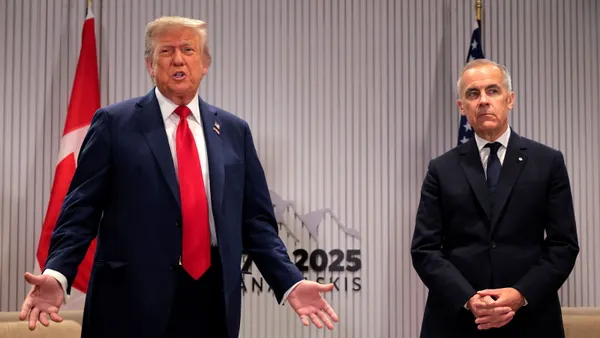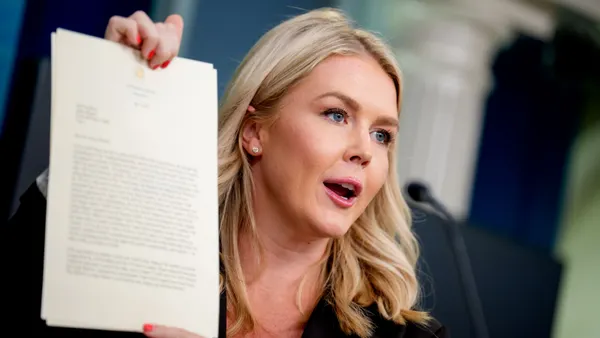Dive Brief:
- A new trial has been ordered in a 2013 case that would have forced oil-tanker transport firm FTS International to pay $36.1 million, according to a Wednesday decision by the Texas 12th Court of Appeals. The verdict and award was originally $101 million, one of the largest trucking-related awards ever ordered, before the trial court gave a reduction.
- The appellate court ruled that the verdict did not give "reasonable compensation for actual damages" that a pickup truck driver suffered as a result of the accident. The court also rejected counsel's argument that the lawsuit was the most important case in decades, and that the award was excessive in damages "far beyond reasonable compensation."
- Because Texas law forbids the court to reverse and remand for a new trial on only damages, it ordered a new trial on all issues. The original case was tried in Upshur County, Texas.
Dive Insight:
Large verdicts of more than $10 million per accident — often called "nuclear verdicts" by the American Trucking Associations and others — are unlimited by many state legislatures. One strategy transport firms may be adopting to take on the issue is to use the courts. In the case of FTS, the trucking firm not only got the award reduced — it got a new trial, all by going back to court.
On Sept. 15, 2013, Joshua Patterson was driving his pickup truck through Ore City, Texas, on his way to lunch. An FTS truck driven by Bill Acker drifted into Patterson's lane, colliding with the rear of Patterson's vehicle, according to the decision. Acker would later plead guilty to failing to control his speed. Patterson at the time said he was "unhurt, felt fine, and he had no cuts, abrasions, or other visible injuries," according to the appellate court.
Patterson later sued FTS and Acker after experiencing soreness in the neck and having a disc replacement in October 2016. Patterson won the verdict and the large award as of July 2018. The trial court later that year applied caps to the verdict, and reduced the award. Acker and FTS appealed, asking for a new trial, based on the size of the award and claims that Patterson, a crane operator, was injured at a previous employer.
The appellate court agreed to remand for a new trial, but that's not always the result.
Large verdicts have become a focus of trucking firms, their trade groups and their attorneys. The awards are outpacing inflation, according to the American Transportation Research Institute, and the average trucking-related jury award jumped 483% from 2017 to 2018, with awards over $1 million increasing "dramatically over the last 14 years," according to a June report by ATRI.
Speaking at the ATA's Management and Conference Exhibition (MCE) in October 2019, ATA President and CEO Chris Spear said trial attorneys were taking food off the tables of truckers by taking advantage of truck accidents. The message appeared to be the ATA and other trucking allies were planning to fight back. But how?
Randy Guillot, the owner of Triple G Express and the chairman of the ATA, told Transport Dive in June that "nuclear verdicts seem to be going overboard." Guillot said the ATA's main legislative strategy is to get state legislatures and the federal government to pass tort reform, which would limit the scope and size of lawsuits.
The ATA and others have also appealed to Congress during the pandemic, asking members to forbid coronavirus-related lawsuits as more and more businesses reopen. Exposure-related lawsuits are the main tactic that lawyers may be developing, according to Bryan Quigley, an SVP at the U.S. Chamber Institute for Legal Reform.
"This is where someone sues a business, claiming they got sick because of something else the business could have done to protect that person," Quigley said in an email to Transport Dive in May. "No one will be spared from the threat of litigation: trucking companies, grocery stores, furniture stores, manufacturers, and others all face potentially crippling lawsuits."
The caps and limitations are likely to be opposed by consumer attorneys. Lawyer Brian Kabateck, a former president of Consumer Attorneys of California, told Transport Dive in June that limits or caps would do little to stop frivolous cases.
"Caps always affect the most grievous cases," Kabateck said. "How do caps affect frivolous cases? They don't."










